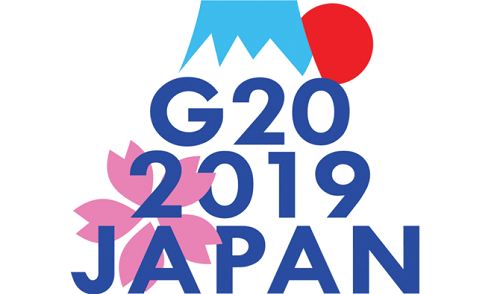
- ARAB NEWS
- 09 Jul 2025

OSAKA: A G20 summit is a big thing. Big in terms of both organizational demands and the impact it can have on the international perception of the country that stages it. Japan understood that at the Osaka summit which has just ended, and Saudi Arabia will become increasingly aware of it in the months leading up to the Riyadh G20 next year.
The event is the only permanent arena for the leaders of the biggest economic and political powers to exchange face-to-face views, but it has no permanent locus. This is why it takes over the life of the country and the city that hosts it. Osaka was consumed with the event for the past couple of days, quite apart from the various meetings that were held in preparation for it.
Here are the top five lessons I learned from attending the summit in Japan.
1) The G20 is a serious forum for global decision-making. Sure, a lot of the event is about public relations and image — the fine details of the “family photo” were endlessly chewed over in the city itself and in the Twitterverse. But that was not the real meat of the G20. Vital issues such as global trade, geopolitics and climate change were the big topics, and they were the focus at the public sessions and, we can be sure, even more so at the private but more candid bilaterals. There will be genuine impact from the deliberations at Osaka.
2) But the PR is important too. The body language of the leaders, their reaction to their peers, and the little personal characteristics they exhibit tell us a lot about changing global relationships. Perhaps the most striking image to come out of the event was the handshake between Theresa May, Britain’s outgoing prime minister, and Russian President Vladimir Putin, while Donald Trump’s cosy little chat with Putin will have repercussions back home in the US. As for the politics of the “family photo,” well we all know how difficult families can be.
3) Osaka was a good venue. The International Exhibition Center, or Intex Osaka, where the leaders met and the media deliberated, was easily secured due to its location: on a man-made island in Osaka Bay. While not pleasing to the eye, it could almost have been purpose-built. Public transport in Japan is excellent and cheap, compensating for the lack of taxi access. The police and other security personnel were welcoming and helpful, even when their English was limited. Riyadh is going to have to up its game to better Osaka.
4) The press team that supported the Japanese G20 president were among the most efficient I’ve encountered. For such a big event, it would have been easy to let things slip, to miss timings, to forget individual journalists’ requests. This never happened to me. The quality of attributable briefing about the leaders’ confidential bilateral discussions was as high as you could expect.
5) Japan is well on its way to becoming a truly cashless society. I do not think I have ever visited a country before without folding some of its money in my wallet, even if just for use in emergencies. But I did not use an ATM once in Osaka. Credit and payment cards were accepted everywhere for every conceivable product or service. In fact, I never saw anybody pay with cash during the three days I was there.
Finally, one small moan: the weather at this time of year in Japan. Coming from London, I can take cold and wet; living in the Middle East, I can take hot and dry. But it’s hard to endure hot and wet, as it mostly was in Osaka. I doubt Riyadh will have that problem.
Frank Kane is an award-winning business journalist based in Dubai. Twitter: @frankkanedubai